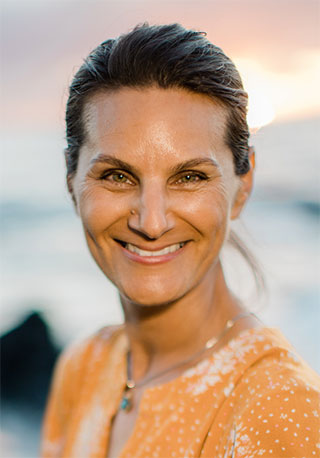
Award-winning author and Maui resident Rukhsanna Guidroz has always lived life on her own terms. Born in England and educated at the Sorbonne in Paris, Rukhsanna has been a world traveler, journalist, radio producer, and now, teacher. Her books feature plucky female characters in stories that charm and delight young readers…and their adults, too.
Hi, Rukshanna! For those who haven’t met you, could you please tell us a little about yourself?
I am an educator and writer. I moved to Maui from Hong Kong in 1996.
Where did you grow up?
I grew up in Manchester, England, and graduated from a small private school outside the city. Manchester has cold, wet, grey winters. I remember the sunny days being such a welcome surprise. I went to Seattle in March last year, and the crisp, cool weather was familiar to me. Even though I’ve lived in a warm climate for 30 years, my body still remembers cold temperatures. I don’t think I could live anywhere else but Hawaiʻi now that I’ve been spoiled.
Who is your biggest supporter?
My husband is one of my biggest supporters. Writing and forging a path as an author can be a long, lonely endeavor. There have been many times when I’ve considered giving up and moving on. My husband has always believed in me and encouraged me through uncertain times.
Why did you become a writer? What inspired you to write for children?
I have always enjoyed writing. In middle school, I wrote a poem that ended up being published in the school magazine. I never considered pursuing writing as a career, but there was something in me that felt the need to write that poem. It was a channel through which I could freely express myself. There came the point in my life when I felt I needed more than just writing stories for myself. I started seeing the stories in book form. When writing wasn’t enough, I knew I was ready to begin submitting my work to agents and editors.
As a teacher and tutor, I have always enjoyed being with kids. Spending time with them allows me to see the world through their eyes. When you put yourself in someone else’s shoes and perceive the world around you, it’s incredible what you see.
What do you enjoy most about writing for kids? What are some of your greatest challenges in writing for children?
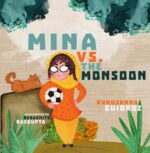 Writing for kids allows me to be a child again. Our youthful years are often spent working out our place in this complicated world. Feelings can be mixed up and confusing. We are trying to understand who we are and where we belong. That vulnerability is a universal theme. It’s what we all share as human beings, no matter where we live or what situation we were born into. For me, it’s a rich ground for exploration and story.
Writing for kids allows me to be a child again. Our youthful years are often spent working out our place in this complicated world. Feelings can be mixed up and confusing. We are trying to understand who we are and where we belong. That vulnerability is a universal theme. It’s what we all share as human beings, no matter where we live or what situation we were born into. For me, it’s a rich ground for exploration and story.
My most significant challenges are staying in their youthful space and not returning to adult life before I finish my work. Remaining in character as I write can be tricky. I have to constantly remind myself who I am and what drives me as a character in the story. I have found tricks to help me, though. Taking breaks for tea, a stretch, or a walk helps me. Changing the font in my document can feel like I’m reading a peer’s work, not my own. That distance allows my constructive voice to come through and spot areas that need adjusting.
What are your hopes and dreams for the year and beyond in terms of your writing career and what you would like to see published in the future?
I would like to think I could be a prolific writer and write book after book. That’s not me. I wish it were, though. I want to write a children’s fantasy novel at some point. The idea frightens me because it’s a genre I’ve never written in, and maybe the challenge is what attracts me. Starting my next project is always refreshing, exciting, and intimidating at the same time.
I would love to see more books out there by marginalized voices. Those little unknown stories are precious gems and much needed in our world. I think it’s essential for our children to see themselves in books so they can feel valued and validated. Literature has the power to do that.
There are not a lot of stories for kids by writers from your community. Why do you think that is? What do you think we can do the change that?
I have never met anyone who is Indian-Chinese. It took me many years to realize that being seen as unique or unusual is not negative. As a person of mixed heritage in England, I always felt like an outsider. But now that I appreciate my identity, I see the possibility of many stories.
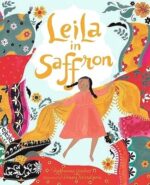 It takes courage to write, and then, of course, you have to find a way to publication, whether it’s traditionally or self-publishing. On your way to publication, you have to find people who believe wholeheartedly in you and your work. The publishing industry has been dominated and still is by white people. When brown and black people fill some of its key positions, perhaps there will be more books that reflect the true diversity of this world.
It takes courage to write, and then, of course, you have to find a way to publication, whether it’s traditionally or self-publishing. On your way to publication, you have to find people who believe wholeheartedly in you and your work. The publishing industry has been dominated and still is by white people. When brown and black people fill some of its key positions, perhaps there will be more books that reflect the true diversity of this world.
Can you share a bit of your current work?
I am currently working on a picture book biography about a chef. Food was such an important part of my childhood. It brought the family together, whether we were having a good or bad day. It was an equalizer and neutralizer. My mother embraced my father’s Indian/Pakistan roots, and our meals were mostly comprised of ingredients and dishes from his culture. My sister and I had a favorite dish we loved to cook. Growing up, we ate a lot of Chinese food, and dim sum was a favorite Sunday. Writing a book about cooking came naturally to me.
Which of your books did you have the most fun writing? Which were the most challenging?
Writing each of my books was a different experience. When I wrote Mina vs. The Monsoon (Yali Books) I had fun crafting a story about a quietly persistent girl who is passionate about soccer. Imaging the scenes of this story were especially fun because I had many colors and their tones in mind, and the illustrator who created the artwork perfectly captured the feel I wanted.
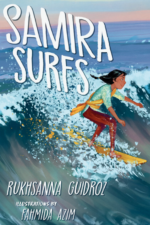 My novel in verse, Samira Surfs (Penguin Random House) is about a Rohingya refugee who finds peace and empowerment in an all-girls surf community. It was probably the most challenging writing because I had never written a novel-length story. It is also a historical story, and I spent nearly two years researching the political and social aspects of the contextual setting. It stretched me as a writer, but I learned much along the way.
My novel in verse, Samira Surfs (Penguin Random House) is about a Rohingya refugee who finds peace and empowerment in an all-girls surf community. It was probably the most challenging writing because I had never written a novel-length story. It is also a historical story, and I spent nearly two years researching the political and social aspects of the contextual setting. It stretched me as a writer, but I learned much along the way.
What beliefs are your books challenging?
My books challenge the idea of limitations on girls. I didn’t set out to write about this theme, and I didn’t realize it was so important to me until I started writing. I believe it’s vital that any human being who wants to express their voice should have the avenues to do that. Girls and women are often overlooked in work, sports, and educational arenas.
In my second picture book, Leila in Saffron (Simon & Schuster) young Leila comes to appreciate who she is through self-discovery. It’s a story of female empowerment, although it can apply to boys or anyone unsure of their identity. I think my biggest compliment would be if even one girl is inspired to speak up after reading one of my books.
What’s your experience with getting your books published?
Writing books can be an exercise in opening your heart and surrendering. Once a publishing contract is made, the author has to let go of complete control of the book. A whole team of people comes on board, and the project then becomes a collaboration with an agent, editor, illustrator, art director, etc. I have had positive experiences with my work and can only speak to the value of working with professionals who know how to shepherd a book from idea to bookshelf.
Do you have a website? Are you on social media? Do social media play a role for you as an author? Do your readers contact you? What do they say?
I have a website and social media accounts, so my readers can find and engage in my work further. I was reluctant to go so “public” at first, but I see the benefits of being visible worldwide. I have received some enthusiastic emails, tweets, and posts, which always brighten my day.
What advice can you give an aspiring writer?
Never give up. Work on your craft and find other writers. Build a community, join one, and get involved in a critique group. Writing is a solitary activity and can lead to long lonely periods indoors. Often in my break with friends or out in nature, I’ll find inspiration, a way through a block, and a word or phrase that was eluding me. Do anything you can to savor and refine your creativity.
Thank you, Rukhsanna, for a sharing your work and your manaʻo with us!
You can learn more about Rukhsanna Guidroz by visiting her website and following her on Instagram and Facebook.



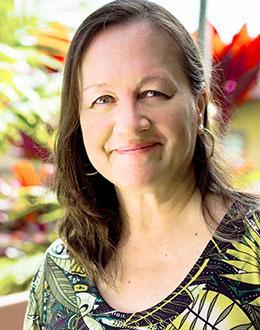
2 thoughts on “Interview with Award-Winning Author Rukhsanna Guidroz”
This was fascinating. Thank you for sharing
Mahalo, Shirin! Rukhsanna was a joy to interview.